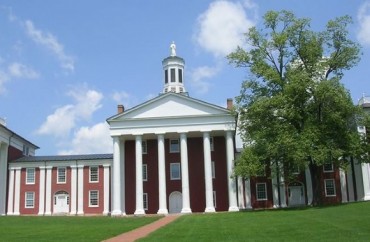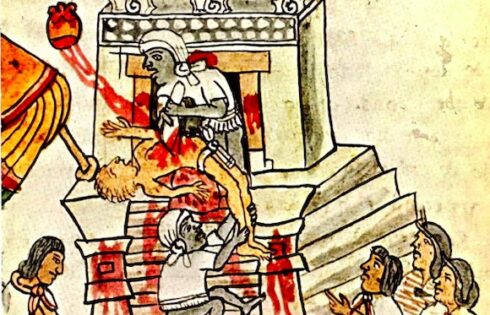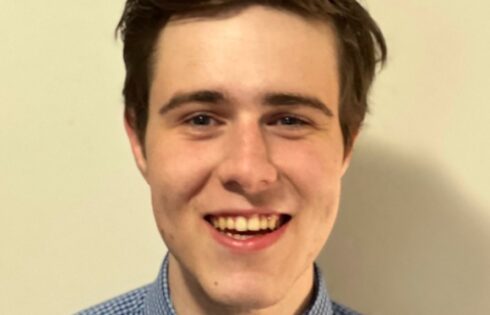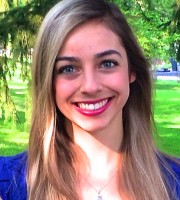
The Stonewall Brigade of the Sons of Confederate Veterans has been denied access to Lee Chapel at Washington and Lee University, ending a longtime tradition of the group to commemorate Lee-Jackson Day where Confederate General Robert E. Lee is buried.
The decision was made in August by President Kenneth Ruscio, who cited inflammatory messages some in the group made toward the university after the school removed the Confederate flag from the main chapel.
“The persistent name-calling, vilification and uncivil attacks in messages to the university, letters to the editors of local newspapers and social media postings have persuaded us that our original intent to make the chapel available would not be appropriate,” Washington and Lee University spokesman Brian Eckert told The College Fix in an email.
The conflict began last summer, after replica Confederate flags were removed from the main part of the chapel to appease a group of six law students called The Committee. The small group had claimed the flags were offensive and demanded their removal from the 500-seat chapel, used for concerts, lectures and other university activities.
In something of a compromise, authentic Confederate flags on loan from the American Civil War Museum in Richmond are now displayed in the Lee Chapel Museum, also housed in the large chapel building.
In a July 2014 email to the campus community, Ruscio explained that the Lee Chapel Museum was an “appropriate location for such a display” because “this way, those who wish to view these artifacts may do so, and the stories behind them may be properly told.”
Ruscio also stated that the university would continue to allow outside groups to use the chapel as long as they agreed to established guidelines.
But emails sent in response to the decision to remove the flags with subject lines such as “A CRIME IS GOING TO BE COMMITTED,” allegedly violated these guidelines.
One SCV member wrote in an email to Ruscio:
“There is getting ready to be a huge mess over this. Better get your lawyers on stand-by.
We will have the last say over this… AND WILL WIN. Just to prove THAT YOU ARE WRONG AND WE ARE RIGHT.
You anti-white history-revising filth, desecrating a grave. You better stop your social engineering or there’s going to be another civil war.”
Members of the Sons of Confederate Veterans, some of which identified as leaders, called Ruscio a “tyrant,” a “f***ing Marxist c***sucker,” and “the nation’s most notorious grave robber,” among other insults, according to Eckert.
“Although we knew that members of some outside groups might disagree with the decision regarding flags in the Chapel statue room, as well as other policies announced last year, we hoped that as a heritage group the SCV in particular would recognize the importance of our installing original flags in the Lee Chapel Museum,” Eckert told The College Fix.
Lee-Jackson Day, a statewide holiday, is observed in January. The conflict did not come to a head between the university and the Sons of Confederate Veterans in Jan. 2015 because the chapel was under repair and closed to the public. The group held their event at Lexington Presbyterian Church instead. But when the group recently sought permission to return to the chapel for the coming 2016 observance, they were denied.
Initially, a Lee Chapel staff member told group member W.B. Wilmore, who requested use of the chapel for next year’s celebration, that his request was denied due to existing policy prohibiting political organizations from using the chapel, but ultimately that was a miscommunication, Eckert said.
Ruscio had said in his 2014 email that chapel access “includes such non-university events as the annual lecture sponsored by an outside group as part of the statewide Lee-Jackson Day observance in Lexington. (W&L does not observe that state holiday.)” But he also stated the university would not host groups that treated Lee Chapel as “a platform for its own displays or statements.”
“We can and do impose conditions for Lee Chapel’s use and for the use of all campus facilities,” Ruscio had stated.
Wilmore said the university’s decision to deny their request was discourteous and inappropriate.
“I’m just upset about the whole thing. There’s no reason why they had to do this,” Wilmore told news station WDBJ. “There’s no sense in these people acting like that. We all have to live here together. All we wanted was two hours out of 8760 hours years’ time. I don’t think what we’re asking for is unreasonable at all.”
Wilmore said he was unaware of the inflammatory messages sent to Ruscio and the posts on social media. He was surprised because the group had never encountered a problem with holding the Lee-Jackson Day event in the chapel previously.
“[The event is] all positive,” he told the Roanoke Times. “It’s not racial or derogatory about anybody.”
But Wilmore did acknowledge that since the chapel is W&L property, the university had full discretion as to who could use the space. He said his group will still hold the event, even though they will need to find another location.
Politics aside, Ruscio said that General Lee deserved recognition for his great contributions to the university. Lee instituted the university’s honor code and speaking tradition, which transformed W&L and remains the guiding principles of the university today.
“I personally take pride in his significant accomplishments here and will not apologize for the crucial role he played in shaping this institution,” he said in his July 2014 email.
Like The College Fix on Facebook / Follow us on Twitter
IMAGE: Facebook screenshot






Please join the conversation about our stories on Facebook, Twitter, Instagram, Reddit, MeWe, Rumble, Gab, Minds and Gettr.